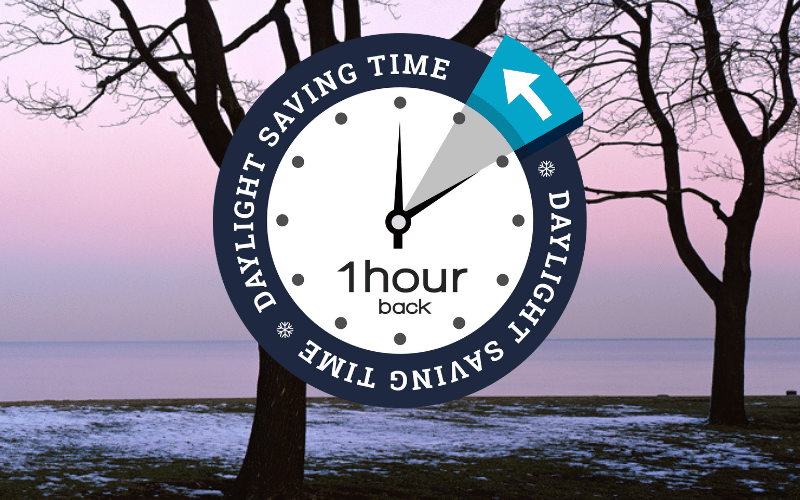WASHINGTON (TNND) — Most Americans will have to roll back their clocks by an hour this weekend as the country makes the biannual switch even though most people want to get rid of the clock change.
Clocks will roll back on an hour at 2 a.m. on Sunday for 48 states, giving people another hour of sleep but meaning more Americans will see the sun go down sooner in the evenings as days get shorter and the switch brings earlier sunrises.
Nineteen states have already passed legislation to sunset changing their clocks twice a year and observe year-round daylight saving time but cannot implement it without Congress. Another 16 states have or are currently considering resolutions related to the clock changes, with some pushing for permanent standard time, according to the National Conference of State Legislatures.
States can switch to year-round standard time, which Arizona and Hawaii have already done, but any that want to adopt permanent daylight saving time need an act of Congress.
A coalition of lawmakers has been trying to make daylight saving time the default setting for the country year-round, which would bring more daylight in the evenings at the cost of sunlight in the morning. But those efforts have mostly fallen flat as lawmakers have struggled to reach a consensus on what the best approach to a permanent solution would be.
The issue came up again this week with a bipartisan group of senators who sought unanimous consent approval for a bill that would lock the clocks in daylight savings time in a proposal that also has the backing of President Donald Trump. But the effort was blocked by Sen. Tom Cotton, R-Ark., who missed out on a chance to block a similar proposal in 2022.
“If permanent daylight savings time becomes the law of the land, it will again make winter a dark and dismal time for millions of Americans,” Cotton said in his objection. “The darkness of permanent savings time would be especially harmful for school children and working Americans.”
Sen. Rick Scott, R-Fla., has been leading the charge in recent years to dump the biannual time change for the Sunshine Protection Act, which would make daylight saving time the national standard and give states the ability to opt out. The bill has been sponsored by 18 other senators during this Congress.
In his remarks on the floor on Tuesday, Scott said the bill would allow states to decide what system is best for them while getting rid of the “confusing, unnecessary and completely outdated” process of changing the clocks.
“It allows the people of each state to choose what best fits their needs and the needs of their families,” Scott said. “The American people are sick and tired of changing their clocks twice a year. It’s confusing, unnecessary and completely outdated.”
Trump has gone back and forth on his enthusiasm for making the switch, but his most recent position on locking clocks in permanent daylight saving time kicked off a lobbying battle between industries that would benefit from later daylight hours and sleep doctors who say it would be harmful to health.
“Very popular and, most importantly, no more changing of the clocks, a big inconvenience and, for our government, A VERY COSTLY EVENT!!!” Trump said in a Truth Social post earlier this year.
Limited polling on the issue has found a majority of Americans agree that the country should dump changing the clocks, but what system should take its place is more contested. In a Gallup survey from March, 48% of Americans said they would prefer to have standard time all year, while 24% want daylight saving time year-round and 19% want to keep the status quo.
The Senate Commerce Committee dedicated a hearing to the issue earlier this year and ultimately narrowly advanced Scott’s bill out of the committee, but the hearing also highlighted the divide on what the best approach to time changes is.
Some lawmakers shared concerns with Cotton about their constituents having to wait until late in the morning for sunlight, citing issues with sleep patterns and safety risks for children waiting for school buses in the dark.
A sleep expert who testified at the hearing said permanent standard time would help more people improve their sleep and improve mental and physical health.
“The sun is one of the most powerful drivers of health and well-being, but the timing of sunlight is what’s critically important,” said Dr. Karin Johnson, a physician and neurology professor who testified on behalf of the American Academy of Sleep Medicine. “The adverse effects are greatest in our children, our teenagers and other night owls whose bodies’ clocks already run late.”
Advocates for making daylight saving time permanent argue it would help boost economic activity during evening hours, a position that has been backed by golf and retail industries.


















